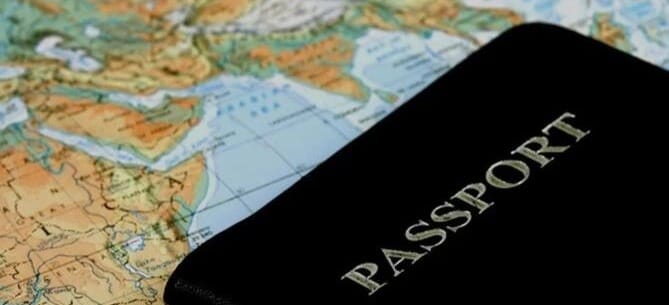Immigration: The Human Endeavor for Better Opportunity or Survival

Throughout history, access to life-sustaining needs—food, shelter, education, and safety—has fueled human migration. In today’s globalized world, however, the image of the “better life” is heavily shaped by media portrayals of the West. Flashy cars, high-paying jobs, stable infrastructure, and perceived security draw millions each year to pursue opportunities in Europe, North America, and other Western nations.
Yet the reality for immigrants—especially those from the Global South—is far more complex. What is often portrayed as a pathway to freedom and prosperity can, in truth, become an emotional, psychological, and bureaucratic struggle, filled with hidden costs that many don't anticipate.
The Unequal Rules of Migration
Migration today is not equally accessible. Citizens of Western countries enjoy visa-free or visa-on-arrival access to a large portion of the world. They travel freely for business, education, and leisure without the need to prove income, employment, or even purpose.
By contrast, people from countries in Africa, Latin America, Southeast Asia, and the Caribbean face steep barriers. A basic tourist visa to the U.S. or U.K. can involve financial documentation, background checks, interviews, and high rejection rates. This disparity sends a clear psychological message: the Western world is not open to everyone, and even when it is, it comes with conditions.

The Harsh Reality After Arrival
For those who overcome these barriers and migrate, new challenges begin. Immigrants—particularly those with darker skin—often encounter systemic racism, isolation, and a long, sometimes impossible, journey to assimilation.
Documentation struggles are common. Many immigrants live in limbo for years—on student visas, work permits, or asylum claims—while trying to legalize their status. One misstep, or an expired document, can undo years of effort. Even permanent residency or citizenship can take a decade or more, depending on country and status.
Racism and social exclusion are harder to document but deeply felt. From housing discrimination to workplace bias, immigrants of color often experience subtle and overt racism. Job applicants with “foreign-sounding” names are routinely overlooked, and upward mobility is often restricted not by ability, but by prejudice.
Assimilation is slow and emotionally draining. Language barriers, cultural alienation, and the burden of being the "other" in a new society take a mental toll. Even second-generation immigrants often report feelings of disconnection—neither fully accepted in their new homeland nor fully at home in their culture of origin.
A 2023 Pew Research study found that nearly half of immigrants in North America reported ongoing emotional distress tied to identity, legal uncertainty, and systemic bias.
Western Policies Are Shifting—And Not in Favor of Immigrants
In recent years, many Western nations have tightened immigration policies. Rising nationalism and economic insecurity have led to stricter border control, lower visa approvals, and reduced access to public services for immigrants. Even international students, once welcomed with open arms, now face steeper tuition fees, reduced scholarships, and limitations on post-graduation employment.
This creates a psychological contradiction: individuals are encouraged to dream of the West but discouraged from actually arriving. The message is clear—access is selective and temporary, even for the educated and law-abiding.
The Silent Cost: Brain Drain
Perhaps one of the most overlooked impacts of migration is the loss it creates back home. Highly skilled professionals—doctors, engineers, and IT experts—who migrate often leave a gap in their home countries’ development. For example, in a recent U.S. survey, over 40% of foreign-born doctors in inner-city hospitals were Nigerian, Indian, or Pakistani. While their contributions abroad are commendable, their absence at home stalls progress in places that need their expertise the most.
Countries like Ghana, Nigeria, and Kenya spend significant resources training professionals who ultimately leave. This brain drain becomes a cycle: those who remain lack support, further fueling the desire to leave.

The World is Changing—So Should Our Perspective
Despite the global imbalance, there is a shift underway. Emerging economies across Africa, Asia, and Latin America are investing in their own futures. Cities like Accra, Kigali, and Nairobi are developing technology hubs, healthcare systems, and education reforms. The African Continental Free Trade Area (AfCFTA) is set to increase intra-African trade by over 50%, sparking job creation and innovation.
The perception that opportunity only exists abroad is being challenged by young entrepreneurs, creators, and reformers who are choosing to stay and build. Rather than migrate, they are investing in local solutions—sometimes with greater impact than if they had left.
Rethinking the Migration Dream
Migration will always be part of the human journey, but it should not be the only solution to personal or national development. The psychological costs—exclusion, identity loss, systemic inequality—are real. Not everyone who migrates finds what they were promised. And not everyone who stays is doomed to struggle.
Choosing to remain and develop one’s homeland can be just as noble, courageous, and rewarding. It allows for the building of a strong, rooted identity. It empowers communities. It transforms nations from within.
In an era of global redefinition, perhaps it’s time we stop seeing migration as the only path forward—and start recognizing the power of building home into the opportunity we once searched for abroad.
Share your thoughts and experience in the comment section—we’d love to hear your perspective.
The Equatorial Gulf is an independent group of writers dedicated to insightful analysis and thought-provoking discussions on global and regional topics.
Comments ()